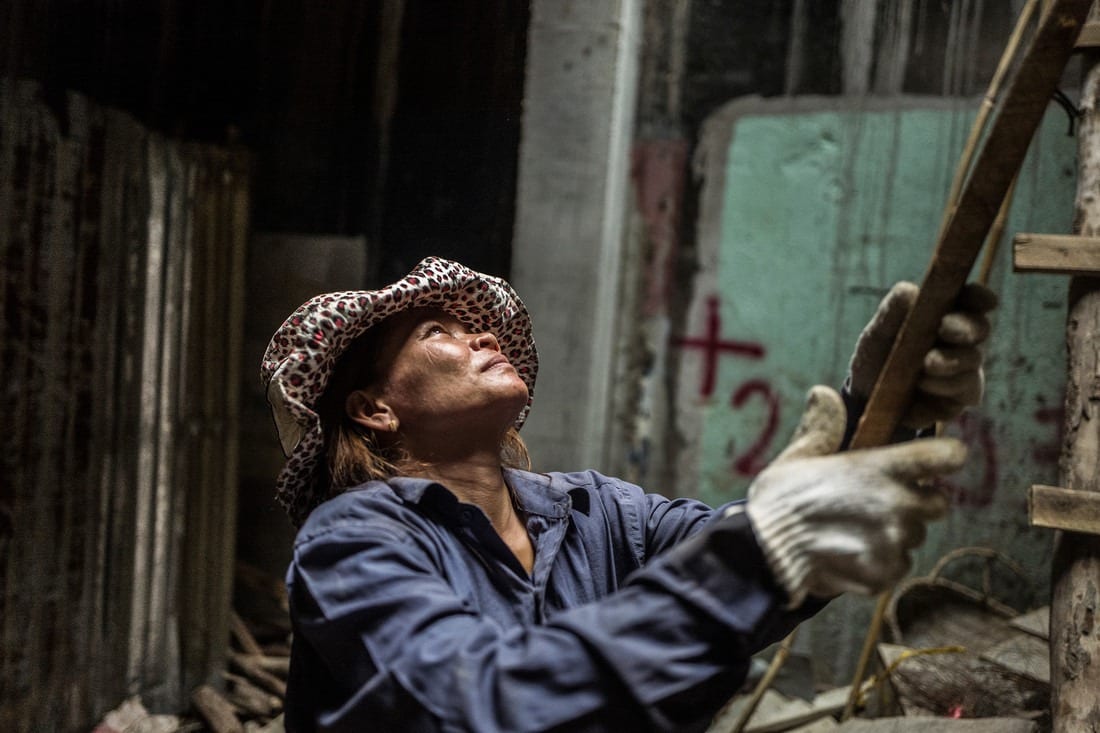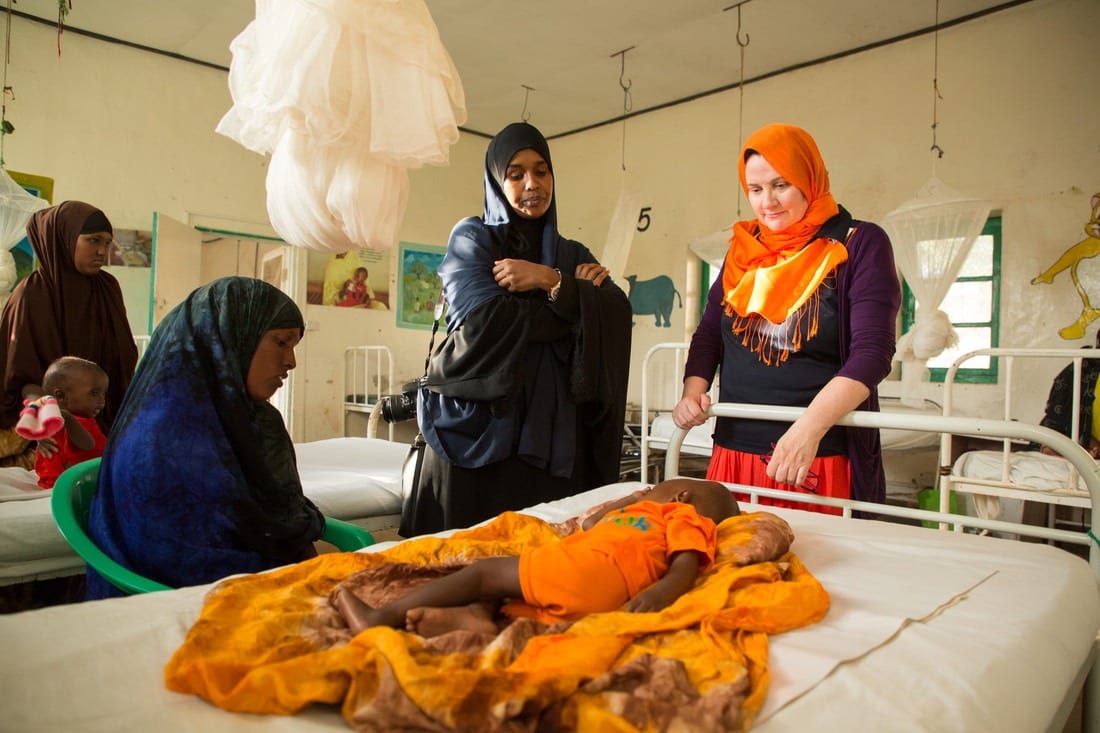In that time we’ve seen the downfall of some of Hollywood’s most high profile men, with a few from the top tiers of Australian media getting caught in the net.
But for every high profile Hollywood harassment incident, there are millions more occurring in everyday workplaces around the world, targeting women who lack the privilege and power to raise their voice about their experience or gain access to any legal recourse.
As someone who has worked for decades in Australia and across our region to stop sexual harassment, I have met many women who have recounted their experiences of harassment and abuse while they’re just trying to earn a living.
The only truly shocking thing about the stories brought to light by movements like #MeToo is that people are still shocked by them. In reality, they reiterate what women have been saying for decades, that sexual harassment and discrimination are endemic in workplaces across the world.

Image: Cambodia Female Workes – courtesy of Care Australia
And it is so because this behaviour thrives in darkness – invisible to those who could never imagine abusing their power in this way, and easily overlooked by others because so many victims of violence do not seek help, but feel forced to accept these assaults in silence.
I am weary of the faux outrage as people claim to be surprised by the impact of this sexually entitled behaviour. It can not come as a surprise to most people – it is simply too commonplace.

Image: Cambodia Female Workes – courtesy of Care Australia
In fact, in Australia, we know that a disturbingly large proportion of the workforce sees such behaviour as acceptable. Research commissioned by the organisation I lead, CARE Australia, found that 27% of Australian men aged 18-24 think it is ‘Always or sometimes acceptable’ to pinch a colleague’s bottom or wolf-whistle at them*.
This, in a country where an active feminist movement, bolstered by robust media discussion, passionate campaigning and comprehensive evidence has worked towards equality for decades, and where we’ve benefitted from more than 30 years of laws banning sexual harassment – longer than these young men have been alive.
If this is still the reality in Australia, imagine what it’s like to be a young woman in South East Asia with no more than a primary-level education. You work far from home in an urban garment factory, in a society where there are few well paid jobs, and being fired would likely condemn your family to a life of poverty.

Image: Cambodia Female Workes – courtesy of Care Australia
A large part of your time at work is spent fending off male colleagues who grab your breasts and send you porn on your phone, or your boss, who refuses to pay you unless you agree to have sex with him. Just like Australian women at work, you want to be treated with dignity and rewarded fairly for your efforts, to feed your family and build a better future. Instead, you face daily harassment.
No-one should have to work this way. This is not working.
It’s because of these realities that CARE Australia focuses on some of the world’s most marginalised workers. We support women and men, workers and bosses, to understand what harassment is, and why it is not in anyone’s interests. We work together to deliver dignified work for everyone, no matter where.
When a spark like #Metoo ignites, those of us with the power need to make the moment count by shining the light into dark corners everywhere. It is our responsibility to broaden the focus of this movement from people with privilege to also include the world’s most vulnerable women – those who don’t have the power or the platform to speak up.
What the world’s women need now are stronger laws, and committed implementation of those laws, particularly in developing countries. The international community has the chance to come together and push the International Labour Organization (ILO) – the global body tasked with protecting workers around the world – to formulate a comprehensive set of regulations making it illegal for workplaces to be a place of abuse. CARE urges the Australian Government to push for the creation of a binding convention that bans workplace sexual harassment when the ILO meets later this month.
We are all poorer when sexual harassment is viewed as acceptable. It is up to us now to take the next step towards real, widespread change. We must move beyond the focus on celebrities and Hollywood, and bring the millions of forgotten women into the light shed by #Metoo, empowering them to demand their rights, raise their voice and make it clear that #ThisIsNotWorking.
To sign CARE’s petition for new international labour laws to protect all workers from workplace harassment, go to caretoact.org.au
Hero Image: Cambodia Female Workers – courtesy of Care Australia


